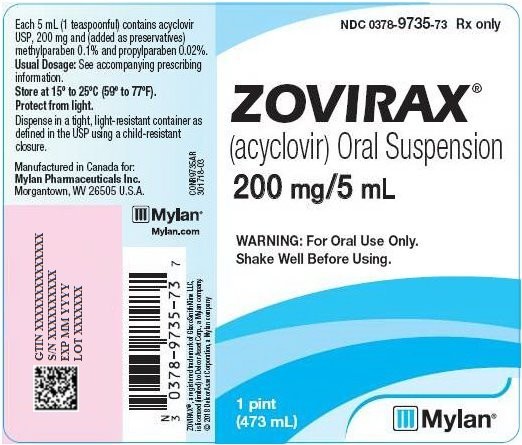
Acyclovir – Oral, Zovirax
Medication Uses: Acyclovir is used to treat infections caused by certain types of viruses. It treats cold sores, shingles, and chickenpox. This medication is also used to treat outbreaks of genital herpes. In people with frequent outbreaks, acyclovir is used to help reduce future episodes. Acyclovir is an antiviral drug that decreases the severity and length of outbreaks. It helps heal sores, prevents new sores, and reduces pain/itching. It may also help reduce post-healing pain. In people with a weakened immune system, acyclovir can decrease the risk of the virus spreading to other parts of the body and causing serious infections.
HOW TO USE: Take this medication by mouth with or without food, usually 2 to 5 times a day as directed by your doctor. Drink plenty of fluids while taking this medication unless your doctor directs you otherwise. If you are using the liquid form of this medication, shake the bottle well before each dose. Carefully measure the dose using a special measuring device/spoon. Do not use a household spoon because you may not get the correct dose. This medication works best when started at the first sign of an outbreak. It may not work as well if you delay treatment. Dosage is based on your medical condition and response to treatment. In children, dosage is also based on weight. Take this drug at evenly spaced intervals to keep the amount of drug in your body constant. Continue to take this medication until the full prescribed amount is finished. Do not change your dose, skip any doses, or stop this medication early without your doctor’s approval. Tell your doctor if your condition persists or worsens.
SIDE EFFECTS: Nausea may occur. If nausea persists or worsens, tell your doctor or pharmacist promptly. Common side effects may include dizziness, drowsiness, signs of kidney problems, mental/mood changes, shaky/unsteady movement, and trouble speaking. Seek immediate medical attention if you experience serious side effects such as extreme tiredness, slow/fast/irregular heartbeat, easy bruising/bleeding, new fever, bloody/dark urine, severe stomach/abdominal pain, yellowing eyes/skin, sudden vision changes, loss of consciousness, or seizures. Allergic reactions are rare but may include rash, itching/swelling, severe dizziness, or trouble breathing. This is not a complete list of side effects. Contact your doctor or pharmacist for more information.
PRECAUTIONS: Before taking acyclovir, tell your doctor or pharmacist if you are allergic to it or any other similar medications. Inform them of any other allergies you have. Discuss your medical history, especially kidney problems and conditions related to a weakened immune system. This drug may cause dizziness or drowsiness. Do not drive or operate machinery until you can do so safely. Inform your doctor or dentist of all the medications you use before having surgery. Do not have certain immunizations/vaccinations without your doctor’s consent. Older adults may be more sensitive to the drug’s side effects. Acyclovir does not protect against the spread of genital herpes. Always use an effective barrier method during sexual activity. Consult your doctor if you are pregnant or breastfeeding.
DRUG INTERACTIONS: Acyclovir may interact with other drugs and increase your risk for serious side effects. Keep a list of all the products you use and share it with your doctor and pharmacist. Do not start, stop, or change the dosage of any medicines without your doctor’s approval. Some products that may interact with this drug include other drugs that may cause kidney problems. Do not use medications containing valacyclovir while using acyclovir.
OVERDOSE: If overdose is suspected, contact a poison control center or emergency room immediately. Symptoms of overdose may include a change in the amount of urine, extreme tiredness, agitation, loss of consciousness, or seizures.
QUESTION
NOTES: Do not share this medication with others. Use this medication as prescribed for your current condition, and do not use it for another infection unless directed by your doctor. Consult your pharmacist or local waste disposal company for instructions on how to properly discard this product.
Report Problems to the Food and Drug Administration
If you experience negative side effects from prescription drugs, report them to the FDA. Visit the FDA MedWatch website or call 1-800-FDA-1088.
CONDITIONS OF USE: The information in this database is intended to supplement the expertise and judgment of healthcare professionals. It is not intended to cover all possible uses, directions, precautions, drug interactions or adverse effects. A healthcare professional should be consulted before taking any drug, changing any diet, or commencing or discontinuing any course of treatment.


